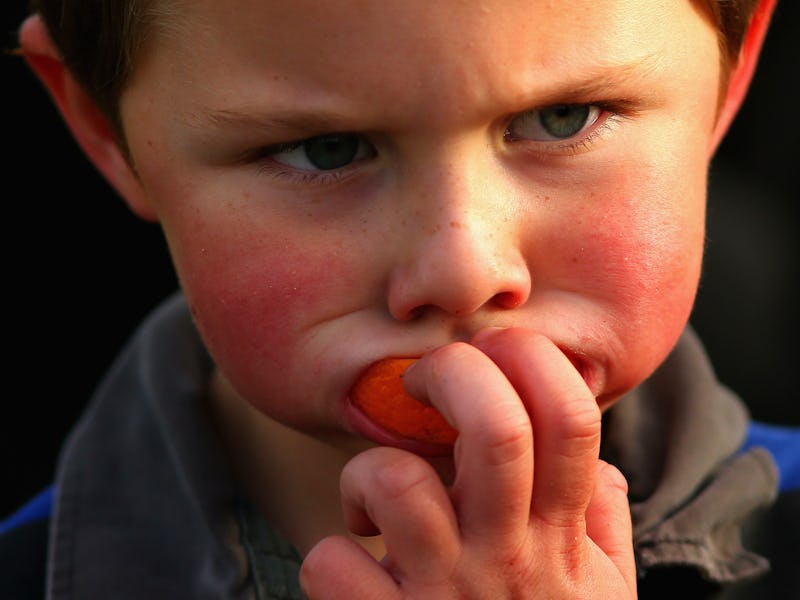Kids Who Are Picky Eaters Grow Up More Anxious and Depressive
They tend to be extremely sensitive in general.

Being a picky eater as a child is tough, but — as a new Duke University study has found — it can have starker consequences than a playground shaming after not taking a bite of an egg roll. You know what I’m talking about, right? Jumping a new kid into the gang with an egg roll snack-off? Right, totally.
The study — which initially screened 3,433 children — confirms that kids who are picky eaters are more than twice as likely to have anxiety. But, could anxiety also cause picky eating? Are picky eaters more likely to be choosy in life’s other arenas and, therefore, more anxious? The, well, chicken-or-the-egg conundrum got me thinking, so I phoned up Dr. William Copeland — a co-author of the study — for his read. He, fittingly, was finishing up his lunch in Durham, North Carolina; he says that he’s not a fussy sort.
“In part, we are dealing with kids who are more sensitive to other sensations than other kids,” Copeland said of the picky eaters. “So, whether we are talking about visual stuff, whether we are talking about sounds or tastes. Whether it’s internal sensations — the processing of food by their gut — that they just may be more sensitive and they may pay more attention to that than other kids.”
So, how’d they figure out who were the anxious lot? He explained: “There is a longitudinal component to the analysis where we look at kids who are picky eaters and follow up with them two years down the road to see whether this predicted any problems — to see whether it actually seemed like picky eating itself was something that increased risk. And that’s where we saw an increased level of anxiety symptoms.” He added: “So, there is some evidence that this picky eating may lead to higher levels of anxiety. And I also believe that, probably, anxiety leads to higher levels of picky eating. But that isn’t something we tested in this study.”
The good news is that only a small group falls into the red zone: now medically-termed the Avoidant/Restrictive Food Intake Disorder (ARFID). “About 3 percent of the sample are very serious picky eaters,” Copeland said. “And there’s 20 percent overall we considered to have moderate or high picky-eating. So, that’s relatively common, right? The important point is that not all of those kids have problems and go onto have problems with anxiety or depression. It’s a relatively small group, even though they are at an increased risk.” Egg rolls up. Cheers.